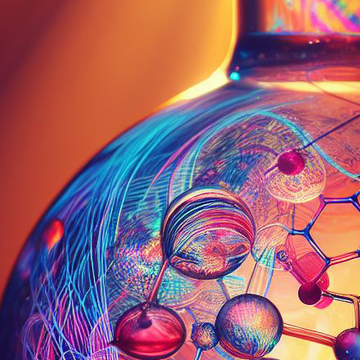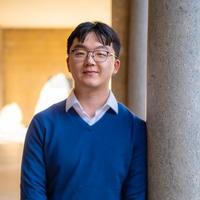Autumn Chemistry Conference 2025

The conference will be delivered in the Inorganic Chemistry Laboratory, and streamed online. There will be an opportunity to ask questions during the event.
Open to Year 12, 13 and interested Year 11 students (or equiv., 15-19 yrs) and their teachers and parents/carers interested in finding out more about the cutting edge research happening in the field of chemistry, and hosted by the Department of Chemistry, University of Oxford.
About the talks:
Bonding with Metals: Chemistry at the Interface Between Molecules and Materials - By Dr Josef Boronski
Chemists use a variety of models to describe how atoms (or ions) bond to one another. Whilst these models can be useful, they sometimes fail to accurately represent the true nature of chemical bonding in exotic molecules, particularly those that feature bonds between two (or more) metal atoms. Molecules like these, with metal-metal bonds, are fundamentally valuable as they provide us with new ways to think about the nature of the chemical bond. Beyond this, because we can also consider molecules with metal-metal bonds as tiny fragments of bulk metal, we can also use them to provide new insights into the reactions of metals that are otherwise difficult to observe (e.g., corrosion, oxidation). In this talk, Dr Josef Boronski will describe recent advances in the field of metal-metal bonding, and how this work is helping us better understand some of the Periodic Table’s most unloved metallic elements.
From sparking water to great landmarks - By Dr Shurui Miao
From iconic Cathedrals to the vast mountain ranges of Dolomite, solid carbon minerals are abundant and enduring features of our world. The natural chemical reaction among carbon dioxide, water, and divalent alkaline-earth metals (mainly magnesium and calcium) is a fundamental component of the Earth's carbon cycle. Recently, scientists have recognised that this natural process can be accelerated by hundreds of folds to help address the alarming increase in atmospheric carbon dioxide levels. By injecting carbonated freshwater into porous volcanic rock, 95 % mineralisation is achieved within 2 years. Unlike most ongoing carbon storage methods that rely on impermeable cap rocks to trap gases and supercritical fluids, mineralisation offers the potential for secure and scalable storage of carbon in the solid form. Nevertheless, despite its prevalence, many scientific questions surrounding carbon mineralisation remain unanswered. This talk will focus on the research by Dr Shurui Miao to study the behaviour of relevant species under confinement, and how atomic interactions can inform solutions to global challenges.
About the speakers:

Dr Josef Boronski is a Lecturer in the Department of Chemistry at Imperial College London and is interested in the chemistry of the elements from the s-, p-, and f-blocks of the Periodic Table. Before this role, Josef graduated with an MChem from the University of York in 2017 and subsequently undertook a PhD at the University of Manchester, which he completed in 2021. In the same year, Josef was awarded a Junior Research Fellowship at St John’s College, Oxford. Here, he initiated a programme of research into the chemistry of beryllium. In 2023, Josef won the Dalton Emerging Researcher Prize. |

Dr Shurui Miao is the Career Development Research Fellow in Chemistry at St John’s College. Before this role, Shurui graduated in 2018 with a BSc in Chemistry from the University of Sydney, Australia and he continued to pursue his postgraduate studies there. In December 2022, he moved to the University of Oxford joining Prof. Susan Perkin as a postdoctoral research associate. Shurui's work specialises in experimental physical chemistry and his research interests are centered around sustainability and self-assembly processes in solution. Shurui's current research focuses on understanding how carbonate minerals form, which is crucial for carbon capture and storage, mitigating the effects of climate change. |
In-person Registration
Sixth form students are welcome to attend unaccompanied, provided they are aged 16 or over on the day of the event and that they have given us an emergency contact name and number (you will be able to provide this information on the form below).
Priority for in-person spaces will be given to local state schools, but other local schools, and those further afield, are welcome to register for surplus places. A waiting list will apply and all those not allocated an in-person space will be invited to attend online.
Interested Year 11s are welcome to attend, however, please be aware that this event is aimed at Year 12-13 students.
We will be offering optional tours which will include an Oxford College and our brand-new 'Chemistry at the Ashmolean', created in partnership with the Ashmolean Museum. There will be opportunities to ask questions of current students during the tours. All tours will run from around 13:00 - 15:30. There will be time to explore Oxford outside of this period.
Deadline to sign up: 08/09/2025
Online Registration
Online spaces are open to all Year 12, 13 and interested Year 11 students (or equiv., 15-19 yrs) and their teachers and parents/carers interested in finding out more about the cutting edge research happening in the field of chemistry.
Deadline to sign up: 23/09/2025
Date
25/09/2025
Time
16:00 - 18:00 BST
Location
Online (open to all)
Inorganic Chemistry Laboratory (priority for UK state school students)
Audience
KS5 Chemistry students aged 15-19 years and their teachers and parents.




